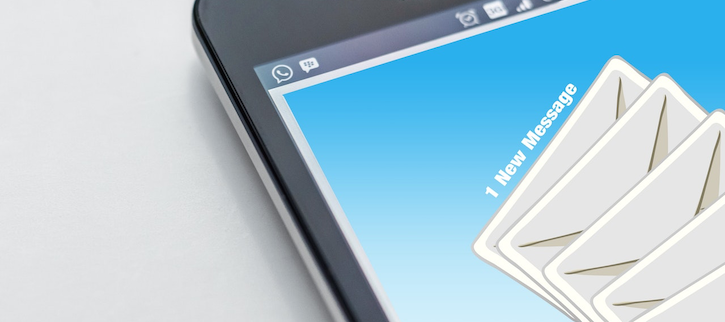- Politics
- Diversity, equity and inclusion
- Financial Decision Making
- Telehealth
- Patient Experience
- Leadership
- Point of Care Tools
- Product Solutions
- Management
- Technology
- Healthcare Transformation
- Data + Technology
- Safer Hospitals
- Business
- Providers in Practice
- Mergers and Acquisitions
- AI & Data Analytics
- Cybersecurity
- Interoperability & EHRs
- Medical Devices
- Pop Health Tech
- Precision Medicine
- Virtual Care
- Health equity
Patients Want More Reminders from Health Plans
Only 14% of patients receive monthly reminders from their health plans.

U.S. patients want to receive regular messages from their health plans if the notices are relevant and can help them stay healthier or save money, according to the findings of a consumer survey conducted by RxEOB.
But the survey showed that 27% of respondents’ health plans never contact them with messages about their health.
A majority of consumers (85%) want their health plans to tell them how to lower their costs for prescription medications through options like generics or alternative therapies. The same amount also wants to be notified of drug recalls based on their prescription histories.
“American consumers are hungry for information on how to improve their health, especially since they are carrying more of the direct burden as a result of the increase in high-deductible health plans in recent years,” said Howard Darvin, M.D., chief medical officer at RxEOB.
And email appears to be the mode of communication that respondents prefer, with 37.5% saying they prefer to be contacted that way. Phone calls and text messaging followed, with 23% and 20%, respectively.
Almost 60% want to receive appointment reminders for checkups or immunizations, while only 45% currently receive them. And 41% want to receive messages about scheduling regular tests, while only 18% do.
Nearly 65% said they open messages from their health plans always or most of the time. But opening the messages could have to do with content, such as receiving reminders.
The survey also found that fewer than one of five members currently receives information on how to avoid, manage or mitigate the effects of a serious, costly condition.
The online survey reflected the views of 400 consumers who are members of commercial- and government-sponsored health plans.
Darvin said the desire for more information creates an opportunity for health plans to improve member health and create and deliver messages that patients want.
“The key is to bring information their members actually want, through the channel they it delivered in, in a timely and personal manner,” Darvin said. “Fulfill those requirements and health plans can build a much stronger and less price-sensitive relationship with their members.”
But timing is everything with patient reminders.
Last month, an analysis of 20 million reminder and confirmation messages found that weekly and daily reminders are the most effective.
So, health plans need to make sure that they are not only personalizing the messages but sending them at appropriate times.
“By hyper-targeting who gets which message, and ensuring messages are relevant and member-specific, health plans can add value to the relationship as well as member lives,” Darvin said.
Get the best insights in digital health directly to your inbox.
More Health-Tech Insights
EHR-Based Text, Call Reminders Show Promise for Medication Adherence
A Free Ride with Lyft Didn’t Reduce Skipped Medical Appointments
Digital Health Interventions Can Reduce Sedentary Behavior in Office Workers
